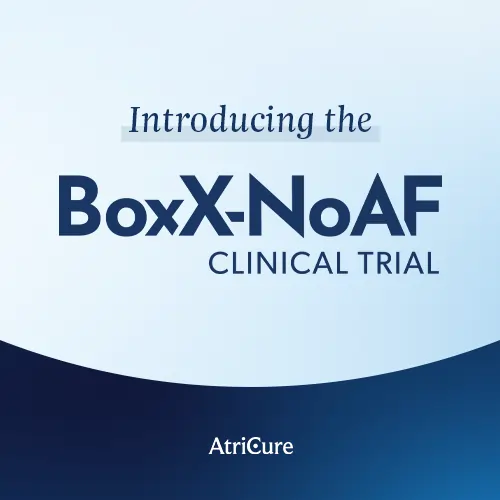

Image Credit: AtriCure
AtriCure, Inc., a well-known innovator in surgical therapies and treatments for atrial fibrillation (Afib), post-operative pain management, and left atrial appendage (LAA) management, proudly announced its first patient enrollment and treatment in the Box lesion creation with left atrial appendage exclusion to mitigate the presence of new-onset atrial fibrillation clinical trial (NCT06989775). A cardiothoracic surgeon at Orlando Health Heart and Vascular Institute in Orlando, Florida, Dr Anthony Rongione, treated the first patient.
The BoxX-NoAF trial is engineered to elaborate on the speciality of concomitant surgical ablation along with the LAA management. The excellent trial results will place atricure in a position to admission extended labelling for the atriclip systems and encompass clamp when implemented together in the BoxX process.
The post-operative Afib (POAF) or new onset is a common and general complexity following cardiac surgery is visible in above 50% of noticed quickly or in a few months following the surgery. These arrhythmias are linked with accelerated cerebrovascular accidents, hospital timeframe of stay, total hospital cost, Afib recurrence, morbidity and mortality. The BoxX-NoAF is an epicentre, in general, prospective FDA-cleared investigational device exemption (IDE) clinical trial involving 960 subjects in 75 sites globally. This revised ongoing trial will describe treatment guidelines and clinical practice for alleviating the footprint of long-standing clinical afib and POAF in elevated-risk cardiac surgery patients.
The president and chief executive officer, Michael Carrel, said, “The BoxX-NoAF and our LeAAPS trial that recently completed its enrolment process in July 2025, mirrors atricure’s vision and dedication to enhance standards of care by lengthening the benefit list of LAA exclusion and surgical ablation to a vast group of cardiac surgery patients.” Michael further added, “We hope the results of these trials clearly specify and convince that the atricure devices can effectively and safely enhance cardiac surgery patients' outcomes globally by mitigating the prevalence of stroke, systemic embolisation and new-onset Afib. These studies show our seriousness in promoting clinical science to extend our addressable markets.”
The MD, MPH, a Cleveland Clinic cardiovascular and thoracic surgeon, Edward G. Soltesz, said, “POAF is still the most aggressive complication for patients who went through undermining patient recovery, cardiac surgery, and accepting prominent hospital resources. We think the BoxX procedure, merging LAA exclusion and box lesion, shall on point alleviate the presence of the new-onset afib and further enhance the standard of quality care for these patients.”